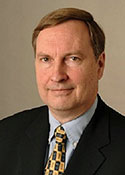College of Natural Sciences and Mathematics and UH Energy Host Energy Symposium Series
Series Features Four Moderated Debates on Critical Energy Issues
The University of Houston College of Natural Sciences and Mathematics and UH Energy is launching the 2013-14 Energy Symposium Series, featuring moderated debates between industry speakers on critical issues facing the energy industry.

Anderson
KrishnaThe series kicks off Oct. 8 with a debate on hydraulic fracturing, featuring Paul
Krishna, issues manager for environmental, health and safety at XTO Energy, and Scott
Anderson, senior policy advisor for the Environmental Defense Fund’s climate and energy
program.
Margaret Hill, a partner at Blank Rome, will serve as moderator.
“Energy is a complex, multifaceted issue, and UH serves as a location to share ideas and discuss issues that go beyond the popular sound bites,” said Ramanan Krishnamoorti, who directs the UH energy initiative. “We are engaging with respected experts from the industry and think-tanks to better educate our students, staff, faculty, alumni and the broader Houston community.”
 The series is free and open to the public. It will be held at the Hilton University
of Houston Waldorf-Astoria Ballroom, beginning at 6:30 p.m. RSVP to uhenergyseries.eventbrite.com.
The series is free and open to the public. It will be held at the Hilton University
of Houston Waldorf-Astoria Ballroom, beginning at 6:30 p.m. RSVP to uhenergyseries.eventbrite.com.
“This series is building on the success of our college’s health-related lecture series
in 2012,” said Dan Wells, dean of the College of Natural Sciences and Mathematics.
“The energy topics we’re addressing are often seen in the headlines, and the moderated
debates will allow the audience to better understand both sides of these critical
issues.
Subsequent debates will focus on liquefied natural gas exports, Nov. 12; climate change,
Feb. 11; and the renewable energy, March 4.
Krishnamoorti said hydraulic fracturing is a critical topic because along with horizontal drilling, it has revolutionized the nation’s energy landscape. But that has come at the cost of significant controversy.
“The discussion we are engaging in here is to truly understand the process of fracking and best practices, and to determine if such processes can be truly sustainable as the technology is going to be deployed worldwide,” he said.
- Jeannie Kever, University Communication